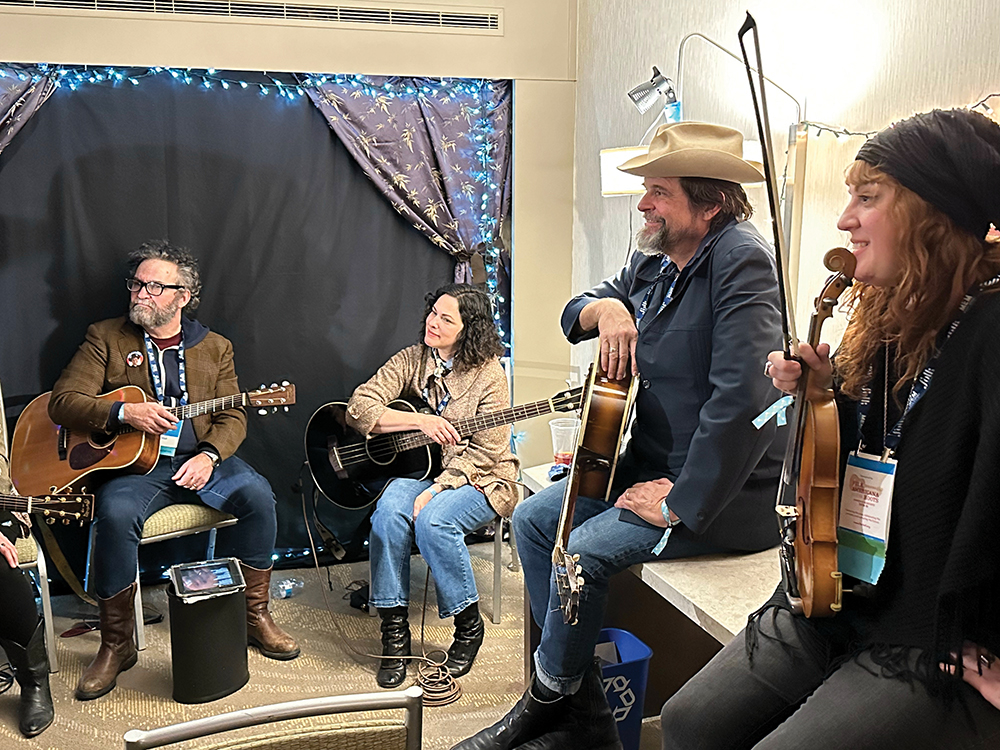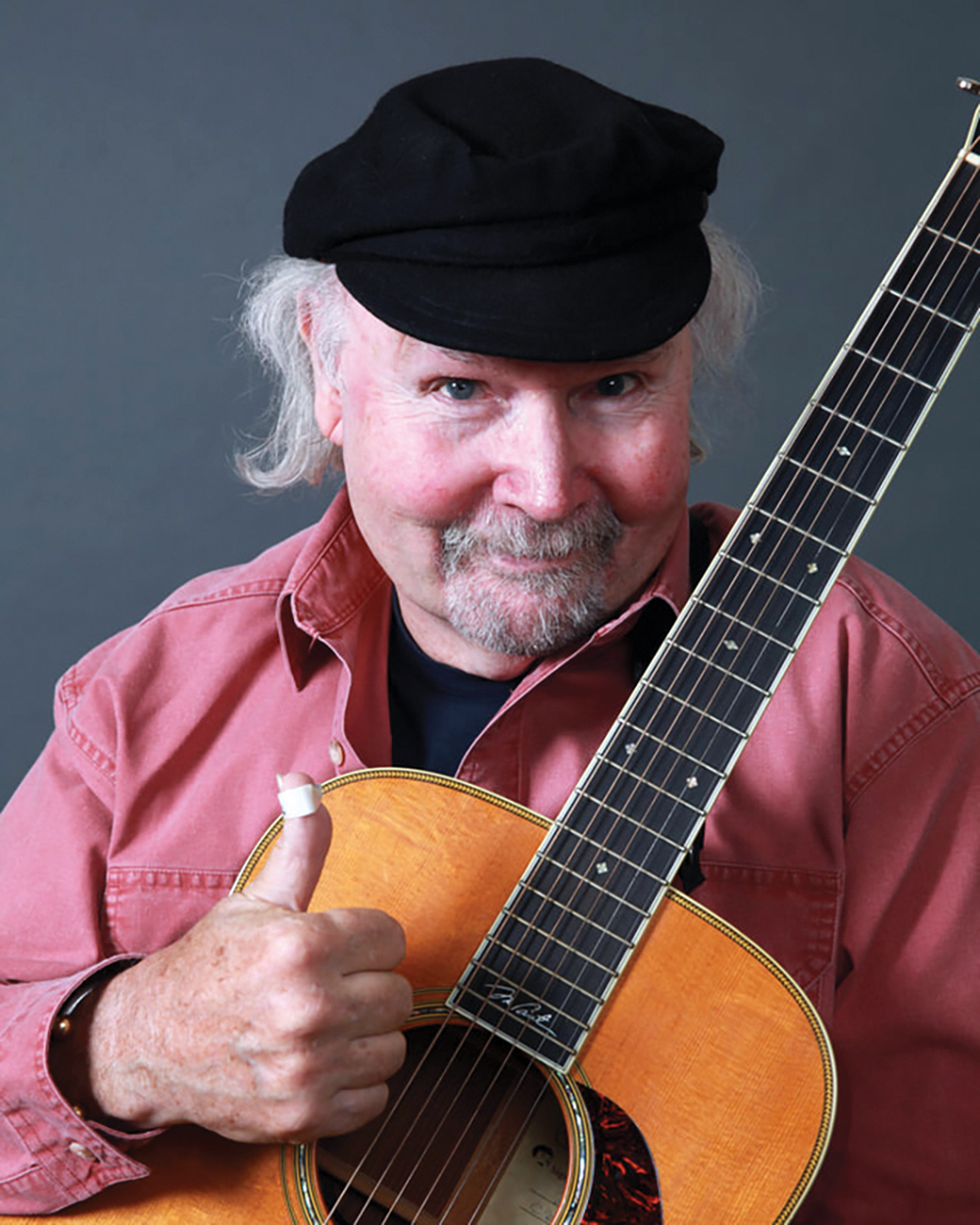The folk music old guard that dominated the Folk Alliance International conferences for the past 35 years has passed the guitar to a new generation that is younger, energized, and mostly female and non-white.
And the kids are all right.
In the BC years (before Covid), the annual five-day conference that draws more than 1,000 musicians from around the world was largely the province of aging performers and music lovers.
This year, the beat has changed. Most of the performers were young, female, and non-white, lending a whole new energy to the event that was held this past weekend in Kansas City, Missouri. The LGBTQIA+ community was also well-represented.
Memphis was everywhere, chosen as the first “City of Honor,” with Memphis-oriented workshops, speakers, and a slew of talented performers including Amy LaVere, Bailey Bigger, Talibah Safiya, Yella P of Memphissippi Sounds, violinist Alice Hasen, and the brilliant Aquarian Blood.

Grammy-nominated singer, songwriter, poet, and actor Valerie June astounded with her keynote speech that said love and hope can defeat hate and fear. As she spoke about the global crisis, the “technological hacking of the human mind and body,” and nuclear war, she abruptly stopped and flashed her trademark smile. She walked to center stage, picked up a banjo, and played a delicate version of “What a Wonderful World” in defiance of the doomsayers.
Wherever she walked, she was treated like royalty. Women and children rushed up and hugged her.
She now lives in Brooklyn but said she would always consider Memphis her home. Like the rest of us, June went from concert to concert to hear the young artists.
The annual gathering is designed to allow music critics, agents, disc jockeys, and concert and festival bookers to get up close and personal with new artists and discover new talent.
It’s also a chance for singers and musicians to strut their stuff in the smaller, intimate venues of the Westin Hotel and gather new fans. There are organized workshops and concerts during the day and evening, though much of the action started at 10:30 p.m. and continued almost to daybreak in hundreds of hotel rooms converted into makeshift music spots. Sometimes a performer played for just one or two people, a memorable experience.
There were a few older performers here, like Tom Paxton and Janis Ian, who acted in more of a non-performing, advisory capacity. Ian received a well-deserved lifetime achievement award. Paxton said he was just there to be inspired by the young people.
Instead of the usual performances by folk icons like Livingston Taylor, John McCutcheon, and Eliza Gilkyson, visitors chose between blues singers from Memphis, storytellers from Ireland, brash bands from Australia, and new Americana voices from everywhere.
The toughest challenge is choosing who to see since every concert choice means missing hundreds of other mini concerts going on elsewhere.
In one, Josh White Jr. seemed a little baffled when his co-performer, 92-year-old jazz genius, composer, and orchestra conductor David Amram asked him to play “House of the Rising Sun” a second time. But he smiled and acquiesced.
Amram impulsively invited young musicians he just met hours earlier to join them. Violinist Rahel-Liis Aasrand of Estonia and percussionist Natalia Miranda from Guatemala nervously joined Amram and White in an impromptu jazz number, as if they had played together for years.
Amy LaVere has a voice much larger than her lithe frame which was dwarfed by the stand-up bass she played. Her voice is at once sweet and powerful, and her accompanying guitarist and violinist could not have been better.
Alice Hasen showed just how versatile the violin could be, switching gears from classical to folk to almost hip-hop.
There was music around every corner. In one room, Brit Shane Hennessy played an instrumental tribute to Chet Atkins. In another, the laid-back Aquarian Blood’s J.B. Horrell played the guitar upright between his knees while his wife, Laurel, sang along.
And the talent goes on and on, stretching out through the halls and into the early morning hours as it expands the definition of folk music far, far beyond the notion of a guy with a guitar.
For more information on the Folk Alliance and how to attend next year’s conference, go to folk.org.

